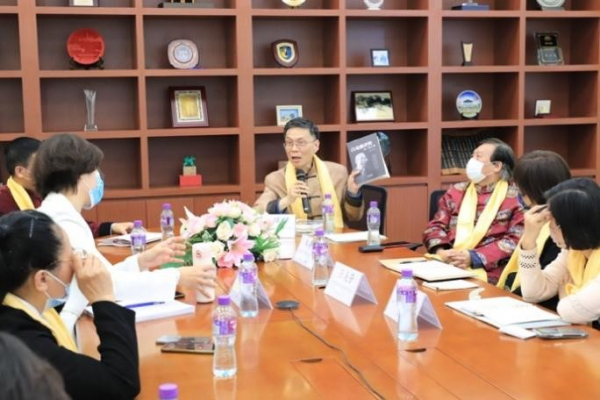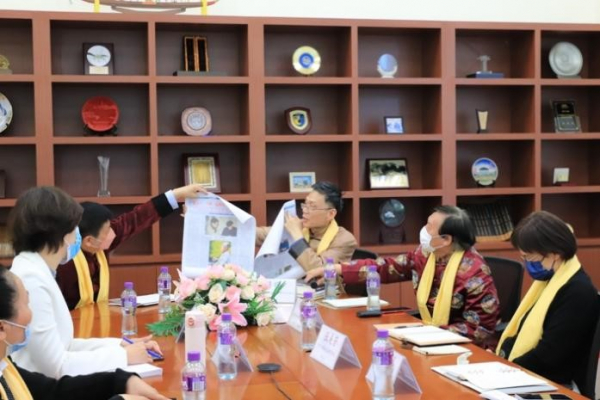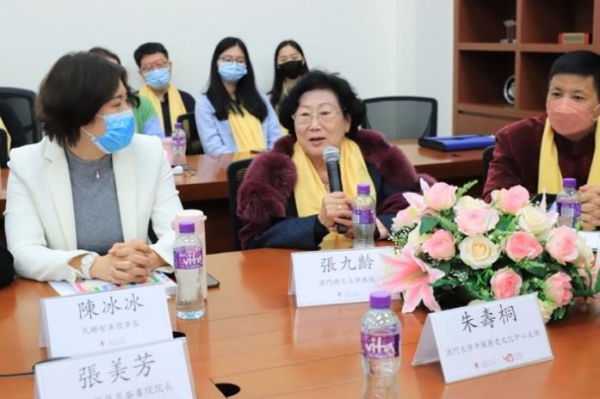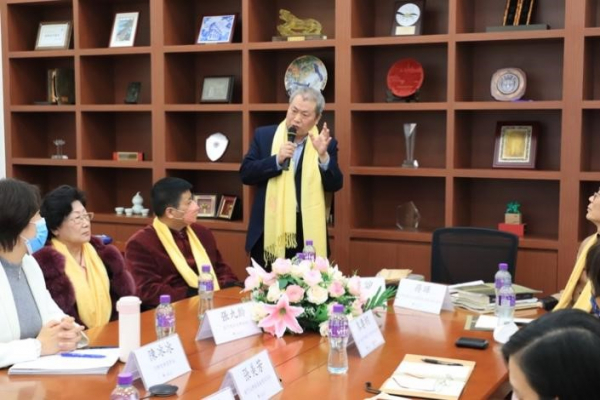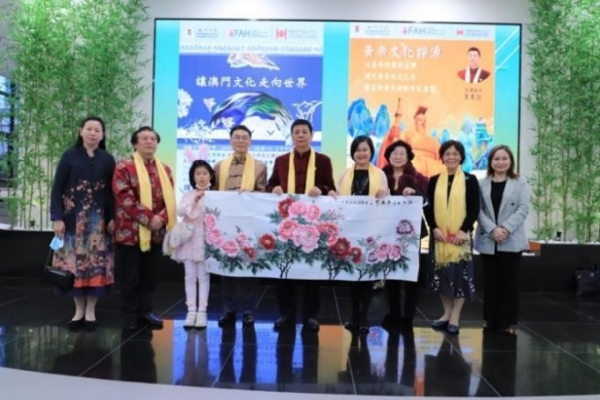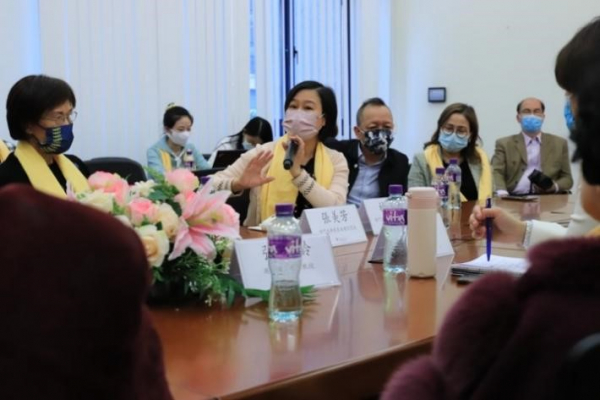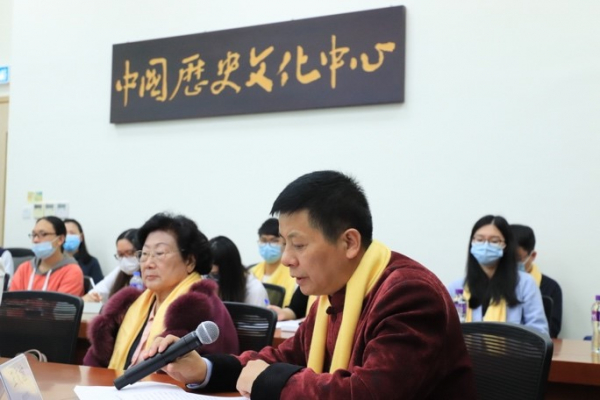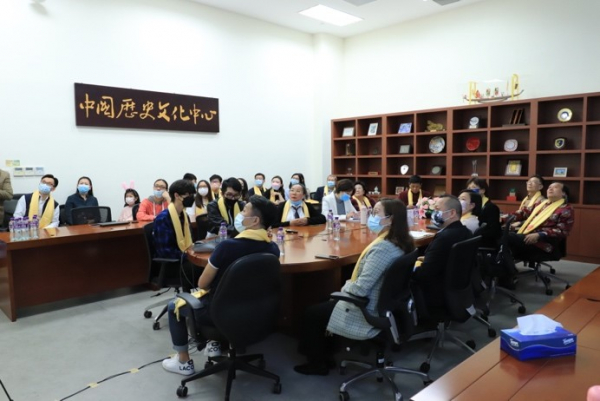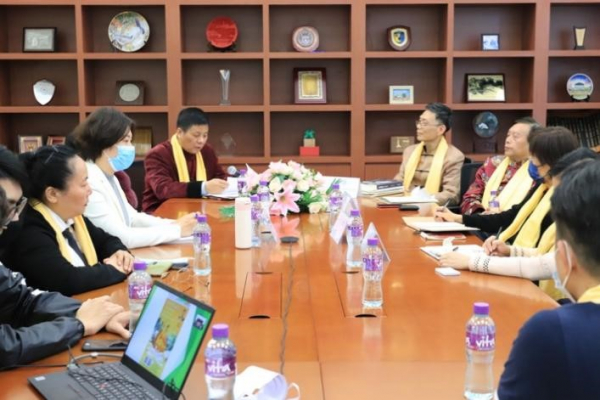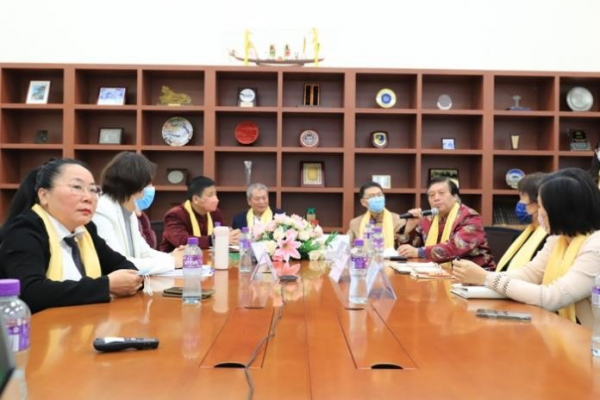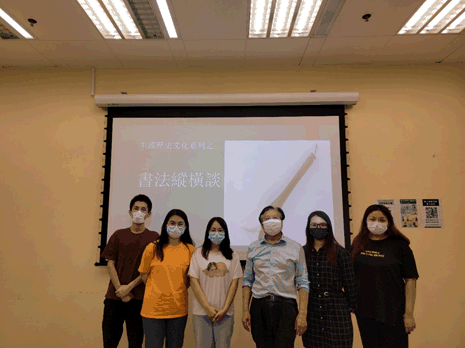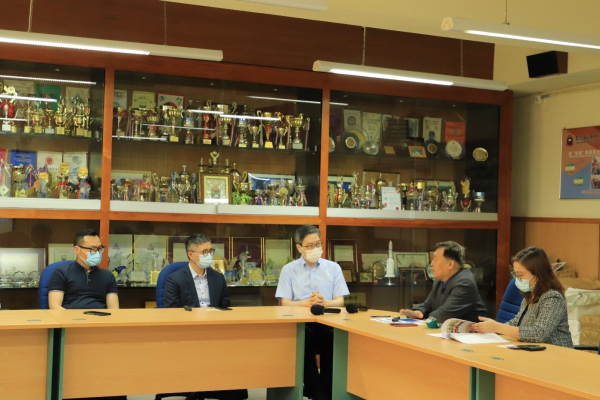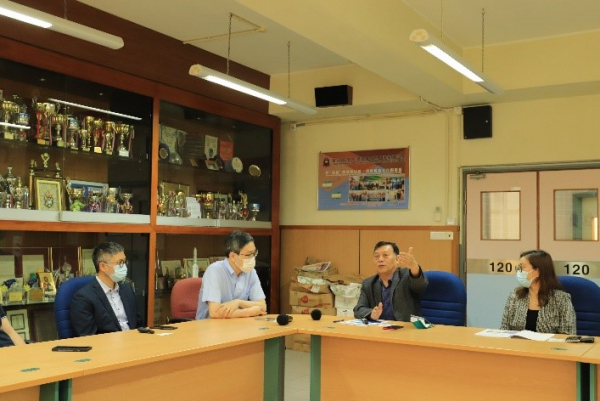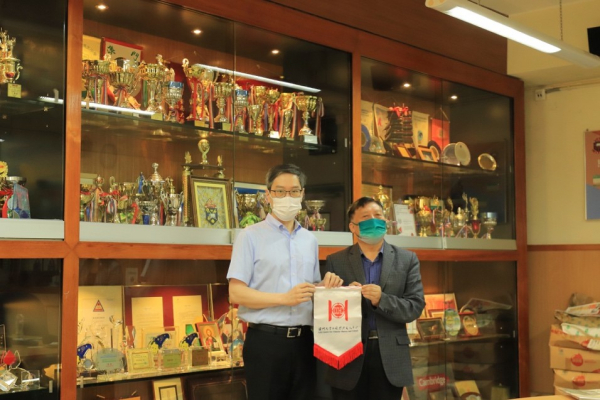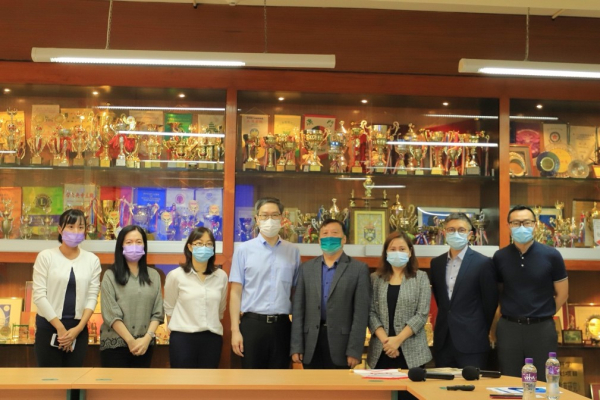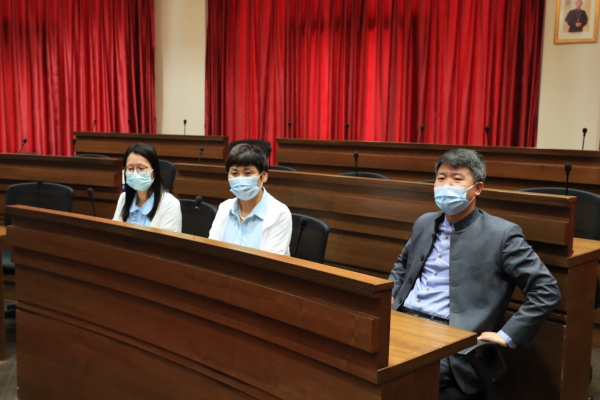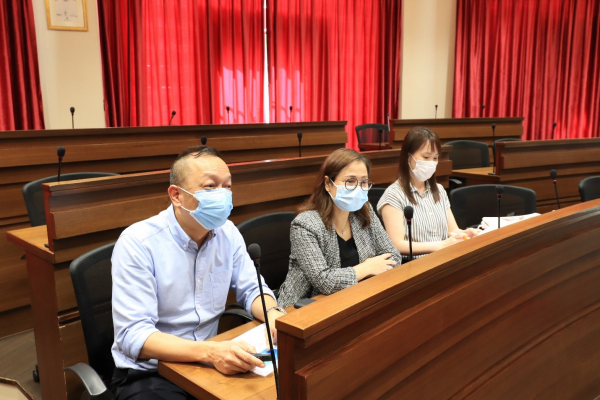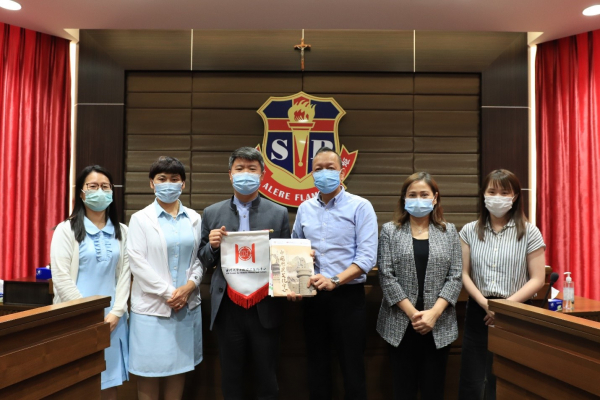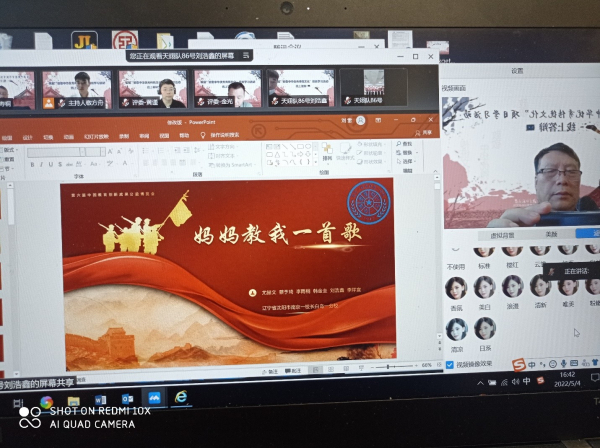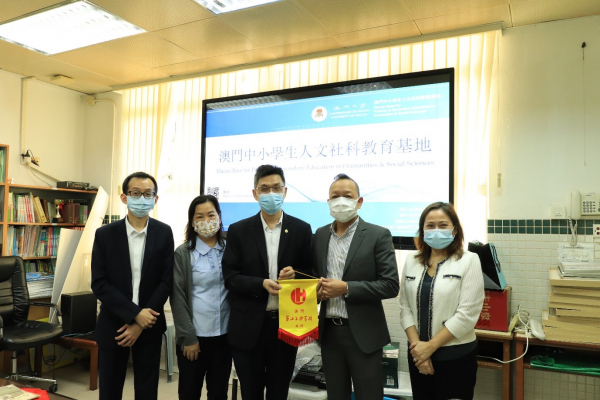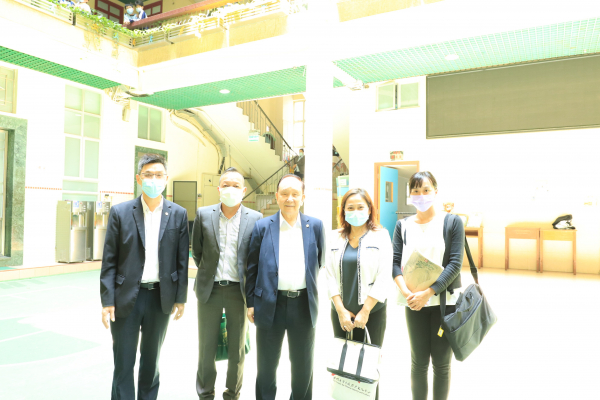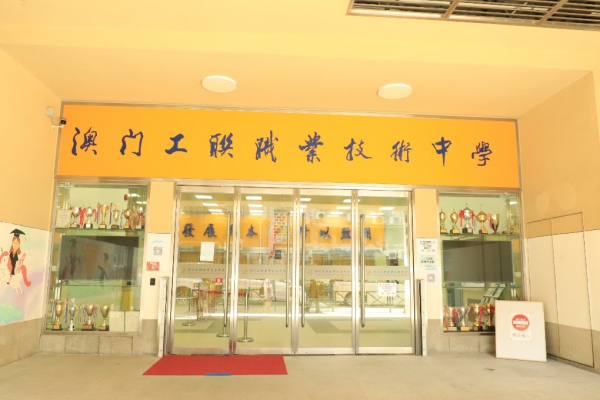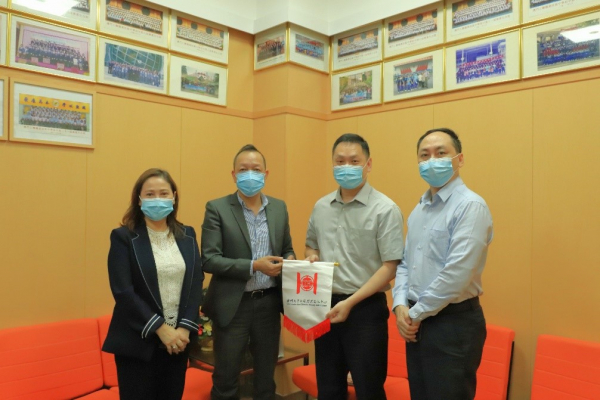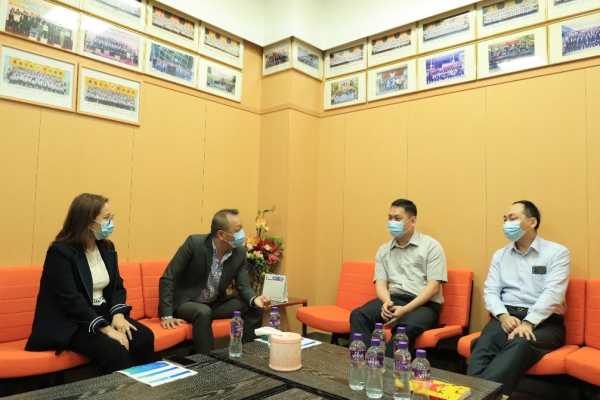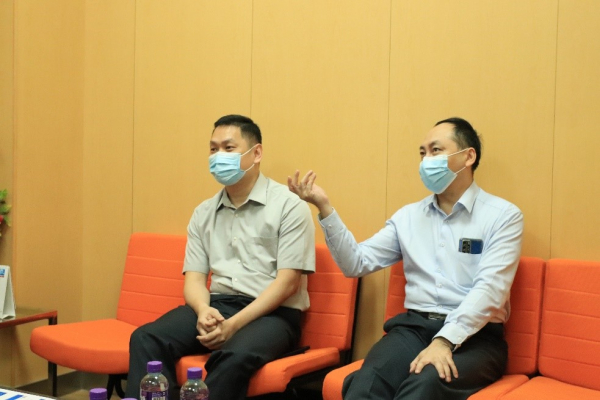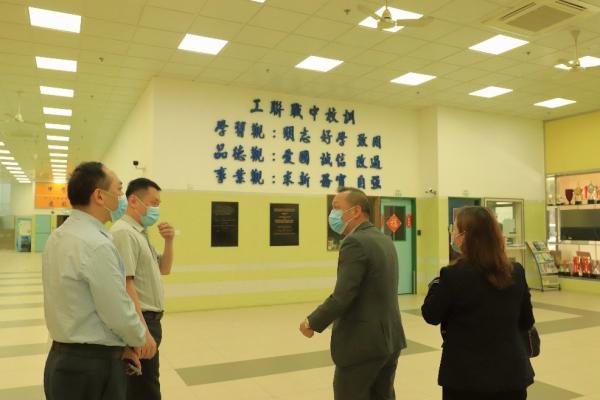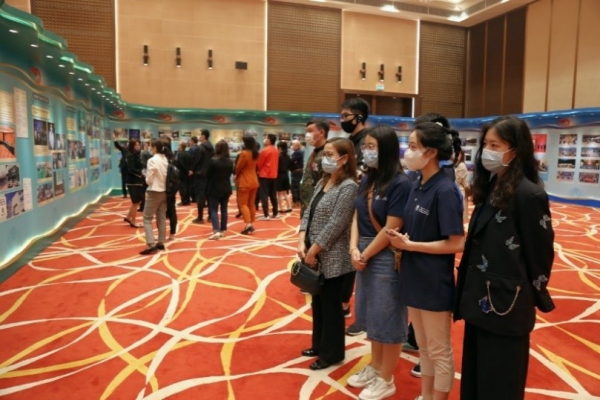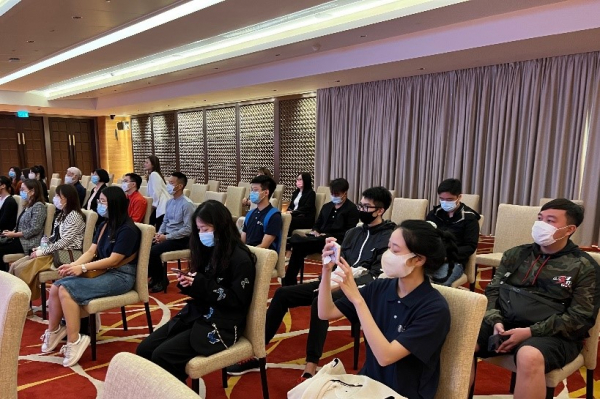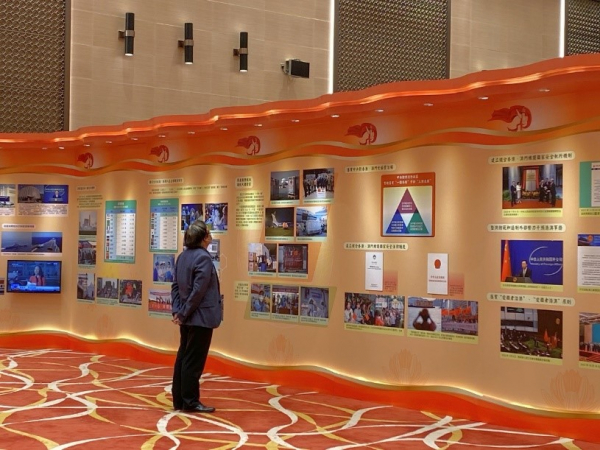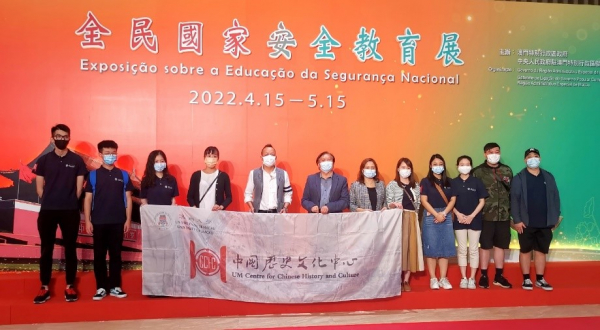CCHC Visited Our Lady of Fatima Girls’ School
On the afternoon of 16 May 2022 (Mon), members of Centre for Chinese History and Culture (CCHC) including Deputy Director Cheang Neng Ian, Principal Admin Officer KUAN Sio In and Admin Staff Tong Ho Kei visited Our Lady of Fatima Girls’ School for discussion of future collaboration opportunities and were warmly greeted by Principal Lao Lai Mui of Our Lady of Fatima Girls’ School, and other leaders and teachers. During the visit, the two sides had an in-depth exchange and discussion on mutual understanding and future cooperation.
Firstly, Deputy Director Cheang briefly introduced the concept, resources and activities of Macao Base for Primary & Secondary Education in Humanities & Social Sciences and CCHC, and invited the leaders and teachers of Our Lady of Fatima Girls’ School to attend the next Macao Forum on Education in Humanities and Social Sciences.

Deputy Director Cheang introduced the Centre and the Base
Principal Lao Lai Mui also explained the current status of Our Lady of Fatima Girls’ School in promoting Chinese culture and said that the school’s mission has always been “to love our people and promote our outstanding traditions”. For example, the annual “Chinese Culture Week” is co-ordinated and designed by different subject groups to enhance students’ awareness and recognition of Chinese culture in a multi-faceted and interdisciplinary manner.

Principal Lao Lai Mui introduced the school
Afterwards, Principal Lao Lai Mui affirmed the Centre’s efforts in promoting Chinese culture and made suggestions on the promotional activities to be carried out by the Centre. She expressed her expectation that the Centre could launch more Chinese cultural study tours after the Covid-19 epidemic and allow local students to participate in the study tour of the excellent Chinese traditional culture to explore the civilisation and culture of the surrounding areas. Deputy Director Cheang expressed his agreement to the suggestions made by Principal Lao Lai Mui and believed that the suggestions would have a positive impact on the future development of the Centre.

Souvenirs exchanged between the two parties  Group photo of the participants
Group photo of the participants

